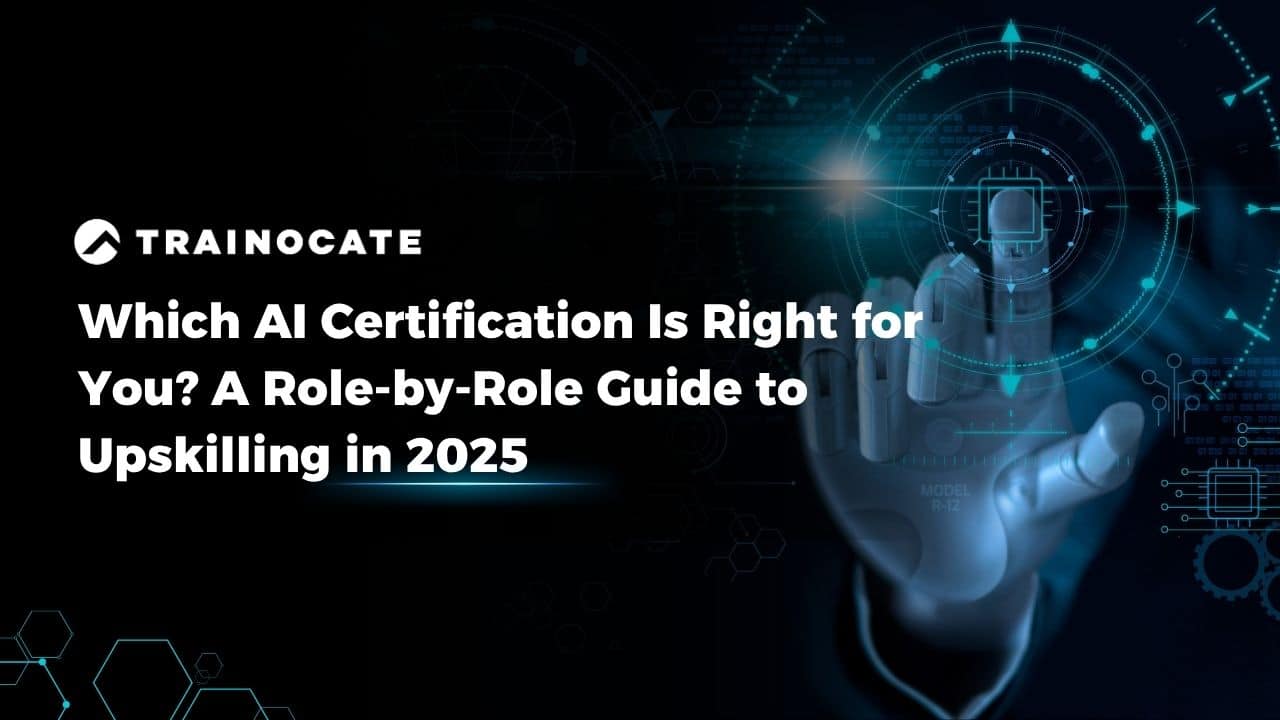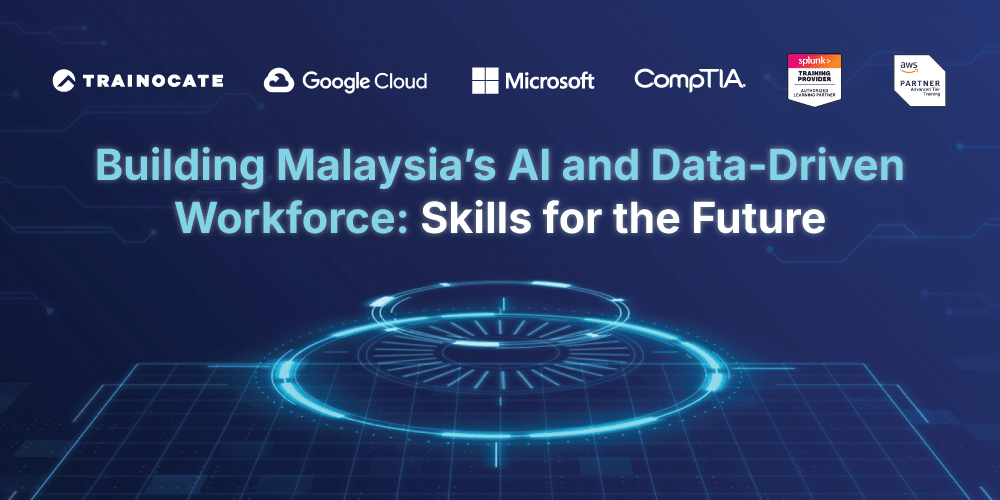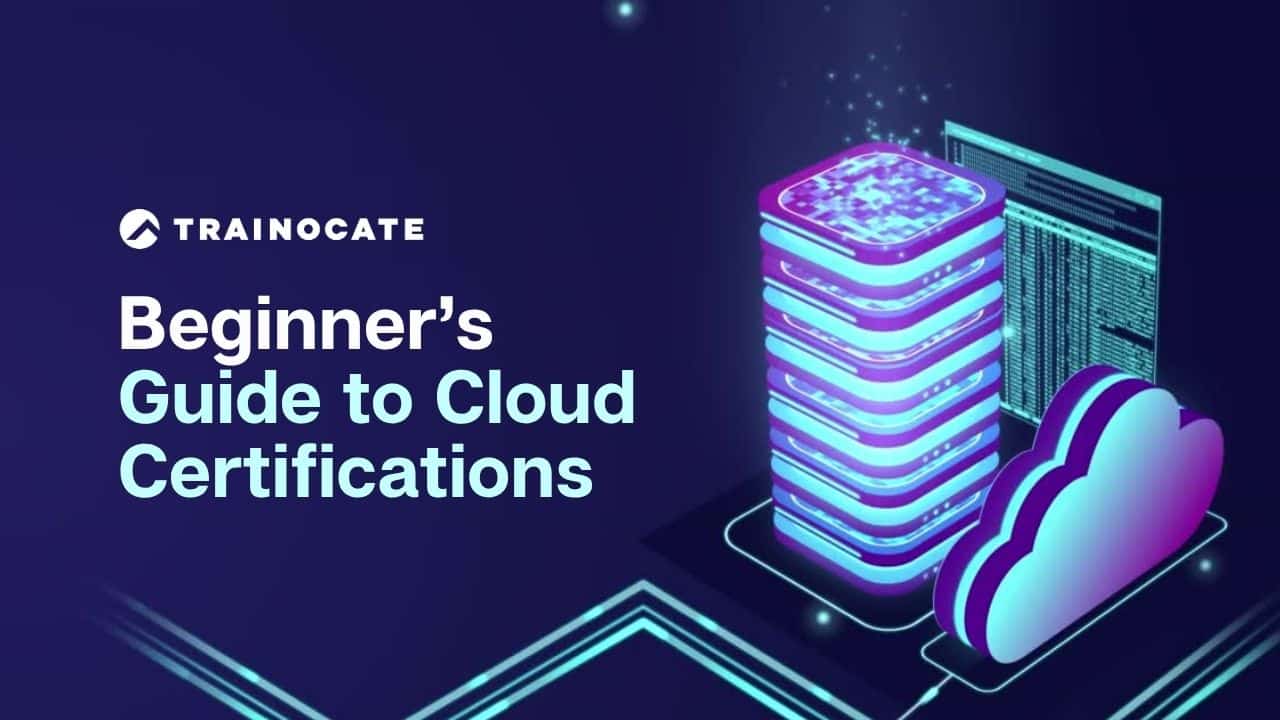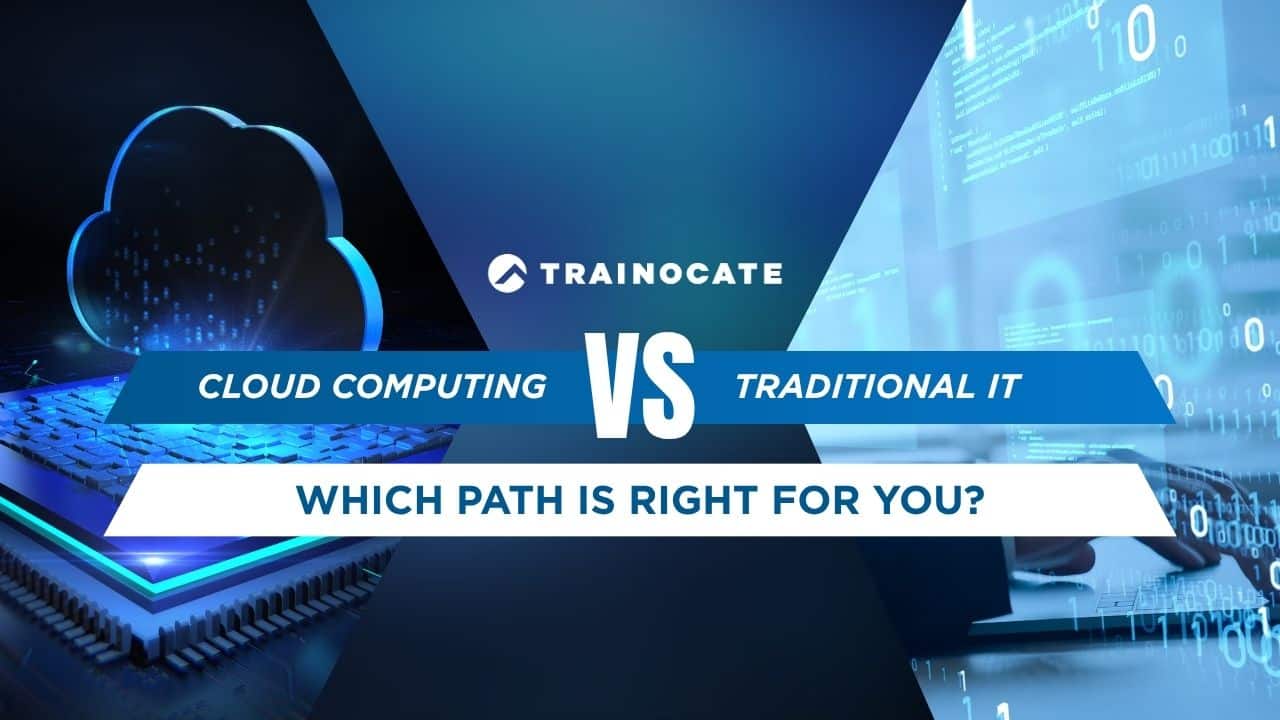Which AI Certification Is Right for You? A Role-by-Role Guide to Upskilling in 2025
Which AI Certification Is Right for You? A Role-by-Role Guide to Upskilling in 2025
The Pressure to Adapt in a Data-Driven Economy
In Malaysia, the rapid adoption of AI and data technologies is reshaping operations across sectors—from finance and healthcare to logistics and retail. As digital transformation accelerates, demand is rising for professionals who can effectively build, manage, and apply AI-driven tools.
National initiatives such as the MyDIGITAL Blueprint are reinforcing this momentum by promoting inclusive digital participation across all business sizes and communities. Phase 3 (2026–2030) aims to position Malaysia as a regional hub for digital product development and technology solutions, ensuring long-term, sustainable growth.
Global tech leaders are also investing heavily in the country’s digital future.
- Microsoft has committed over US$2.2 billion to train more than 200,000 Malaysians in AI and cloud technologies over the next four years.
- In 2024, AWS launched Malaysia’s first cloud infrastructure region to support scalable, secure, and low-latency cloud adoption across Southeast Asia.
- Around the same time, Google pledged RM9.4 billion to develop local data centres and enhance digital connectivity, further empowering local businesses with cloud solutions (The Star).
In this fast-moving environment, one key question remains: Which certification aligns best with your career path? This guide breaks it down role-by-role
Why Choosing the Right Certification Matters
Certifications are more than just a résumé boost—they’re often a key deciding factor. Employers are prioritizing candidates with industry-recognized credentials, not only for technical roles but also for positions in operations, strategy, and product development that now rely on data fluency and AI awareness.
According to the Pearson VUE 2025 Value of Certification Report, 77% of professionals reported improved job performance after earning a certification, while 63% experienced promotions or role changes. In the same report, it was found that the salary increases (6 – 10%) for candidates with certification in the Asia-Pacific region are roughly 32%, which is significantly higher than the global average.
How does this tie back to getting skilled in AI knowledge?
As AI and machine learning continue to advance, both individuals and organizations are increasingly aware of their powerful and far-reaching impact.
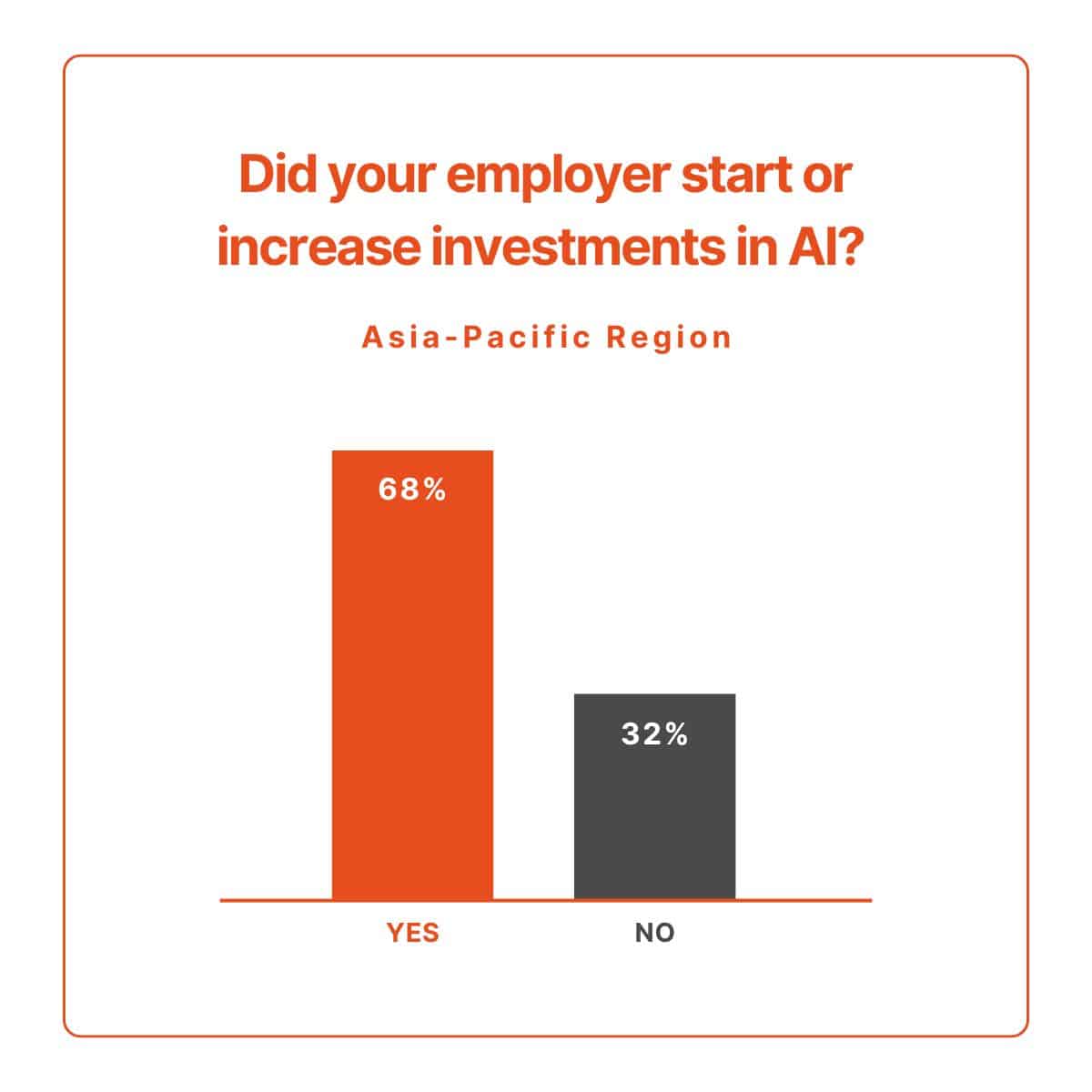
However, not all certifications are created equal, and selecting the wrong one can be led to frustration, wasted time, and limited job relevance. With evolving job scopes and fast-changing employer expectations, alignment is critical. Let’s break down which certifications best suit each role.
Fresh Graduates or Career Switchers
For fresh graduates and professionals transitioning into tech, the best starting point is to build foundational knowledge in AI and data. These entry-level certifications aren’t just for engineers—they’re relevant across business, marketing, HR, and finance functions where digital literacy is now expected.
According to the Hays Asia Salary Guide 2025, Malaysian employers increasingly seek candidates who demonstrate in data-driven tools, even in non-technical roles. For those without prior experience, foundational certifications offer both credibility and clarity.
Here are three widely recognized entry-level options:
Microsoft Certified: Azure AI Fundamentals – Ideal for those wanting to understand core AI concepts and Microsoft’s AI ecosystem.
AWS Certified AI Practitioner – A generalist credential covering AI concepts, methods, and strategies.
CompTIA Data+ – Focuses on data analysis skills, data governance, and interpretation—great for business-oriented tech roles.
These certifications act as launchpads, helping learners identify their interests before committing to more advanced, role-specific training.
Data Analysts and Business Intelligence Roles
As data becomes a strategic asset, demand for analysts is growing in sectors like finance, where AI is used in compliance and reporting; retail, driven by e-commerce analytics; and logistics, where real-time data informs supply chain decisions. These professionals are expected not just to report data, but to interpret patterns, model scenarios, and present findings in a clear, actionable way.
For instance, the ICMR (2024) highlights how AI-powered analytics is transforming banking and wealth management in Malaysia, enabling faster risk assessments, fraud detection, and customer profiling. With similar trends emerging across other industries, skilled data professionals are in high demand.
Recommended certifications include:
Microsoft Certified: Power BI Data Analyst Associate – Ideal for analysts seeking to enhance their expertise in Power BI tools like Power Query and DAX, this certification emphasizes security, performance optimization, and real-world business value delivery.
Microsoft Certified: Azure Data Scientist Associate – Validates your expertise in designing and implementing data science solutions using Azure tools, including machine learning, data analysis, and AI workflows.
Google Professional Data Engineer – Suitable for individuals who manage robust data processing systems. Improves ability to design, build, deploy, monitor, maintain, and secure data processing workloads.
AWS Certified Machine Learning Engineer Associate – Specialty – Ideal for those working with big data platforms, especially in cloud-native environments.
Splunk Core Certified Advanced Power User – Strong option for roles involving operational intelligence and log analysis.
These certifications act as launchpads, helping learners identify their interests before committing to more advanced, role-specific training.
Developers and AI Engineers
As artificial intelligence becomes central to business strategy, the demand for professionals who can design, build, and deploy AI-powered applications continues to rise. Developers and engineers with AI fluency are no longer niche hires—they’re becoming essential across industries.
According to the World Economic Forum’s Future of Jobs Report 2025, roles such as AI and Machine Learning Specialists and Software and Applications Developers are explicitly listed among the fastest-growing jobs globally between 2025 and 2030. These roles are projected to grow significantly, driven by advancements in AI, digital access, and automation technologies
In Malaysia, 56% of employers face a shortage of skilled talent, prompting over half to boost hiring budgets for technical roles. Key areas in demand include data analysis, programming, machine learning, and adaptable soft skills like emotional intelligence (Randstad Malaysia Salary Guide 2025).
To meet this demand, aspiring AI developers should consider certifications that build beyond theoretical understanding:
Google Professional Machine Learning Engineer – Ideal for those looking to advance their career in AI/ML, bridging the gap between business challenges and machine learning solutions.
Microsoft Certified: Azure Solutions Architect Expert – Ideal candidates have advanced IT operations knowledge, including networking, virtualization, identity, and governance, along with experience in Azure administration, development, and DevOps processes.
These credentials align with Malaysia’s vision to become a regional hub for digital products and solutions, offering hands-on skills that move beyond AI literacy into actual delivery and execution.
Picking the Right Path in a Fast-Moving Market
These certifications support Malaysia’s broader MyDIGITAL goals of strengthening the national data economy, preparing analysts to thrive in AI-driven environments.
Whether you’re a fresh graduate, mid-career professional, or technical lead, there’s no one-size-fits-all approach to upskilling. What matters most is aligning your learning journey with your current role—or the one you’re aiming for. Choosing a certification that complements your responsibilities not only saves time and cost but also boosts your credibility in a competitive job market.
Malaysia’s commitment to becoming a regional tech leader is clear. Under the MyDIGITAL blueprint, workforce development is a national priority, with emphasis on real-world, job-aligned learning that enables individuals to support Data and AI-driven growth in every sector. As more organisations adopt AI and data systems, certifications serve as a bridge between emerging technologies and day-to-day operations.
